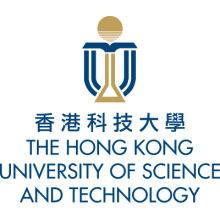HKUST: HKUST(GZ) Formally Established
On June 29, 2022, the Ministry of Education (MoE) announced that it had approved the establishment of the Hong Kong University of Science and Technology (Guangzhou) (HKUST(GZ)). Jointly established by HKUST and Guangzhou University (GZU), HKUST(GZ) enjoys an independent legal entity status and is a progressive undertaking that serves as a role model of high-quality higher education partnership.
MoE said that by leveraging the exceptional academic resources available in the Mainland and Hong Kong, HKUST(GZ) will explore new frontiers in cross-disciplinary education and innovate pedagogies. By doing so, HKUST(GZ) will play a constructive role in cultivating forward-looking talents with global vision, promoting the higher education reform at a national level, and accelerating educational collaboration between Hong Kong and Mainland as well as the development of the Greater Bay Area (GBA).
Admission to Three UG Programs Starts in 2023 and 15 PG Programs in 2022
HKUST(GZ) is the first legally-independent educational institution co-established by Hong Kong and the Mainland since the announcement and implementation of the “Outline Development Plan for the Guangdong-Hong Kong-Macao Greater Bay Area” and the “Overall Plan for Deepening Globally Oriented Comprehensive Co-operation amongst Guangdong, Hong Kong and Macao in Nansha of Guangzhou”.
Under the auspices of the People’s Government of Guangdong Province, the new Guangzhou campus will offer undergraduate and postgraduate education. Admission of undergraduate students will follow the nation’s unified admission policy, while students will receive their certificates of graduation from HKUST(GZ) as well as their bachelor’s degree certificates and degree diplomas from both HKUST(GZ) and HKUST respectively according to the graduation requirements of HKUST(GZ) and HKUST. Postgraduate education for HKUST master’s and doctoral degrees will be offered in accordance with relevant national policies and the University’s graduation requirements, and students will receive their master’s and doctoral degree diplomas from HKUST.
The admission of undergraduate students will begin in 2023, while the first batch of undergraduate programs will cover artificial intelligence, data science and big data technology, as well as smart manufacturing. Starting 2022, the University will offer 15 postgraduate degrees in areas including advanced materials, intelligent transportation, and microelectronics.
HKUST(GZ) and HKUST are of separate legal entities and financial systems. Under the “Unified HKUST, Complementary Campuses” framework, the two campuses enjoy an equal status and will maintain consistency in the academic standard, faculty, and program quality, while creating great synergy by sharing resources and complementing each other’s strengths.
HKUST(GZ) will adopt a framework consistent with HKUST’s for faculty recruitment and academic standard and mechanism, while encouraging collaboration between the two campuses toward fulfilling the mission of strengthening moral education and cultivating talent. More efforts will be devoted to the development of an internationally recognized mechanism for research output accreditation and resource allocation. A performance evaluation system in line with international standards will also be developed.
Meanwhile, the two campuses are well-placed to generate more research impact through better utilizing and sharing resources such as laboratories and research facilities and securing robust research funding support. Upon fulfilment of the requirements set out by the Senates of the two campuses, HKUST(GZ) students can choose to enroll in courses and degrees offered by HKUST, and vice versa. Academic resource sharing between the two campuses, when circumstances allow, will also be promoted, which means students of both campuses will enjoy the same right in using the academic resources provided by the University.
In response to the increasingly complex challenges of the rapidly changing world, the University will substitute the conventional “school-based” academic structure with a unique “Hubs” and “Thrust Areas” structure. This academic structure, which is unprecedented in global higher education, will facilitate cross-disciplinary education and research endeavors in emerging and frontier disciplines.
HKUST(GZ) comprises four Hubs, namely Function, Information, Systems, and Society, with each pointing to the grand challenges facing humanity today. These Hubs welcome top scholars from a wide range of backgrounds and encourage cross-disciplinary collaborative efforts to solve problems that could not have been dealt with using knowledge from one single discipline.

